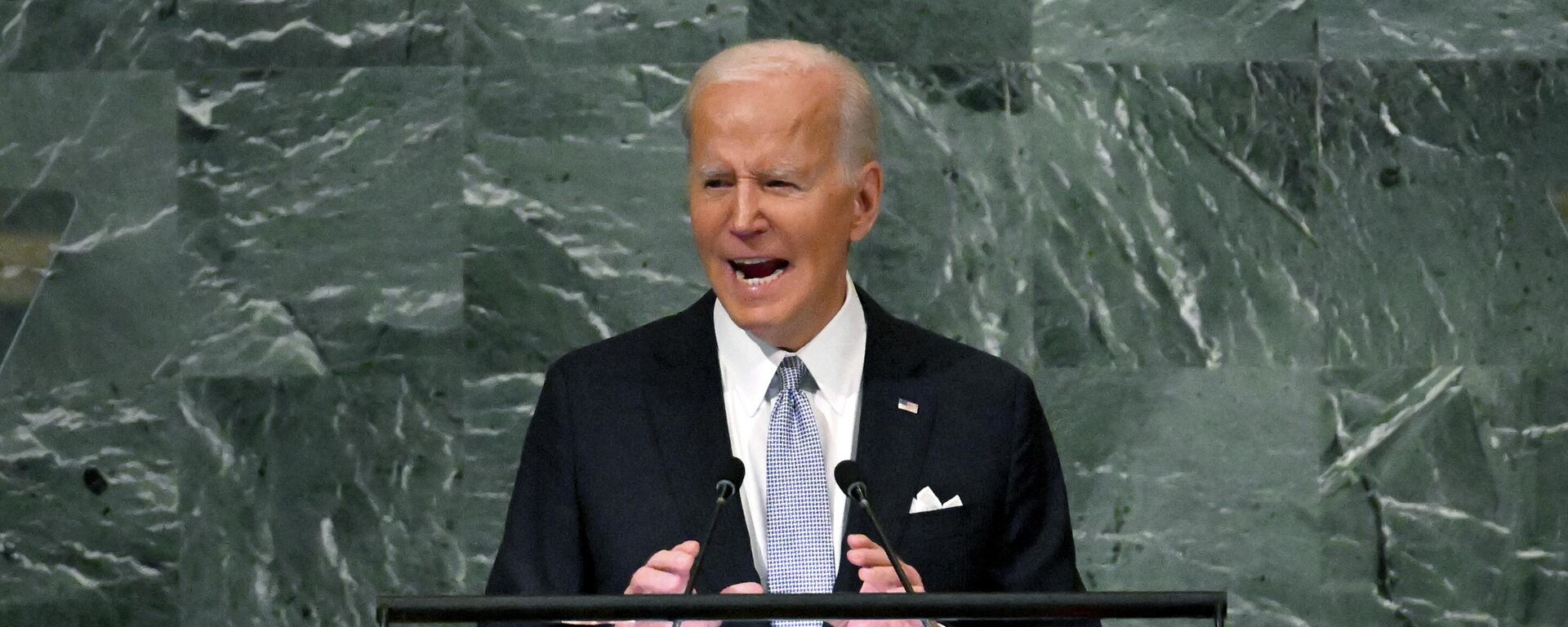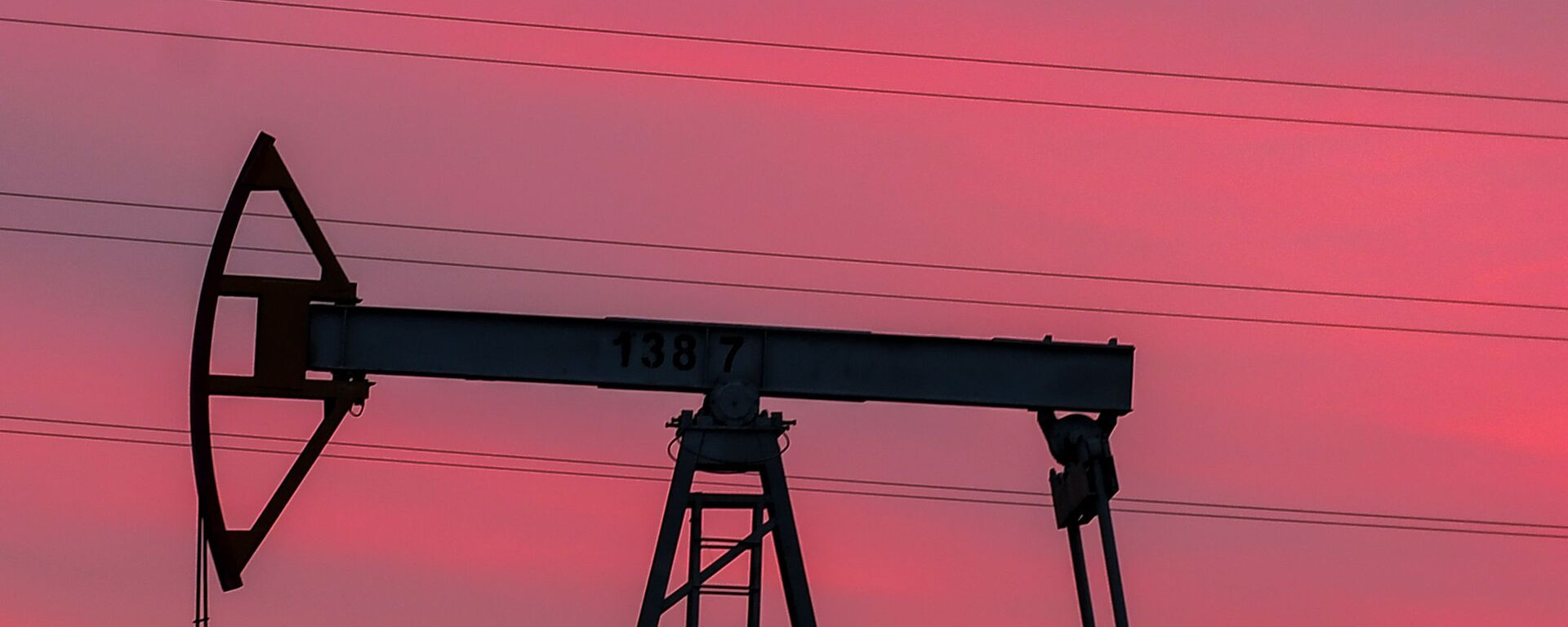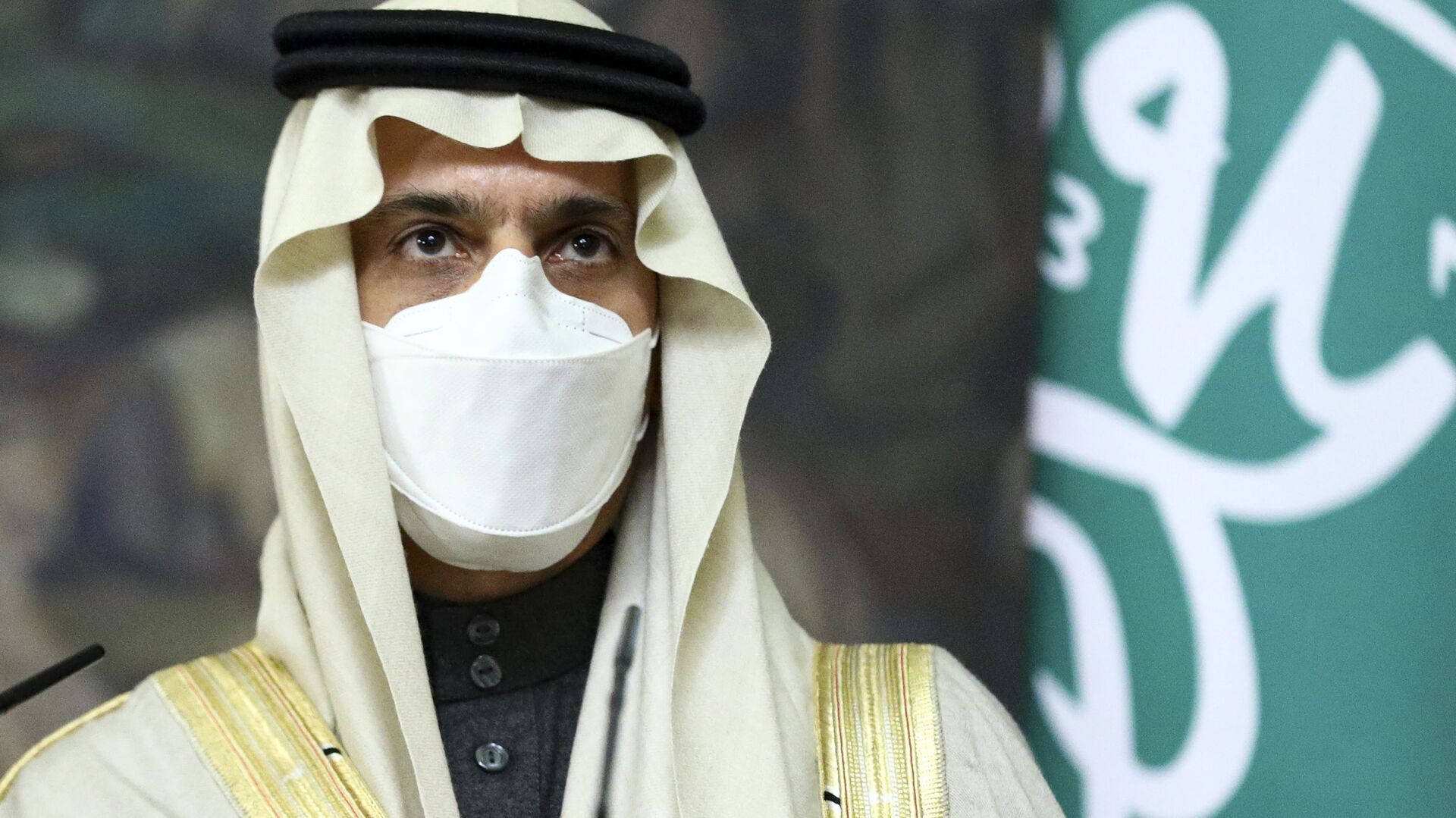https://sputnikglobe.com/20221012/saudi-arabias-top-diplomat-says-opecs-decision-to-cut-oil-production-was-purely-economic-1101754421.html
Saudi Arabia's Top Diplomat Says OPEC's Decision to Cut Oil Production Was Purely Economic
Saudi Arabia's Top Diplomat Says OPEC's Decision to Cut Oil Production Was Purely Economic
Sputnik International
MOSCOW (Sputnik) - The decision of the Organization of the Petroleum Exporting Countries (OPEC) to decrease oil production by two million barrels per day was... 12.10.2022, Sputnik International
2022-10-12T11:15+0000
2022-10-12T11:15+0000
2022-10-12T11:15+0000
world
saudi arabia
us
opec
oil production
https://cdn1.img.sputnikglobe.com/img/07e5/06/16/1083213248_0:161:3071:1888_1920x0_80_0_0_b53ab7253d68dc9b4720a25c40b7e25b.jpg
Last week, OPEC+ announced that the alliance agreed to cut oil production by two million barrels per day from November and will take production levels agreed for August as a reference point. The move was made in response to uncertainty in global oil market outlooks, in part caused by Western sanctions on Russian energy deliveries and the G7 plans to introduce a price cap on Russian crude. The decision received backlash from the United States, which demanded an increase in production to battle rising domestic prices.He noted that Riyadh's relations with the United States "has been institutionalized since it was established," adding that ties with Washington are strategic and aimed at maintaining security and stability in the region. The foreign minister said that military cooperation between Riyadh and Washington benefits both countries.However, the Information and Decision Support Center of the Egyptian Cabinet has voiced concerns that the decision to cut oil production could shake global energy markets."The consequences of the OPEC+ decision could result in turmoils in energy markets, which could possibly intensify due to the embargo imposed on Russian and Iranian oil exports and the reluctance of the US producers to increase production levels to maintain prices," the center said in a report.In 2020, 23 countries, including OPEC members and 10 non-cartel oil producers, reached a deal to voluntarily cut output amid the precipitous drop in oil demand as coronavirus-related shutdowns were taking place worldwide. After the initial agreement to cut production by 9.7 million barrels per day, the deal was repeatedly revised to match market conditions. OPEC+ reached pre-pandemic production levels in August 2022.On October 6, the European Union officially published a new package of sanctions against Russia. It sets a framework for capping the price of Russian oil exports from December at a level coordinated by G7 allies.The Council of the European Union published the regulation that says a third-country vessel carrying overpriced Russian oil should be denied "technical assistance, brokering services, financing or financial assistance, including insurance, related to any transport in the future by that vessel of crude oil or petroleum products."The EU said that, while the ban on importing Russian seaborne crude oil remained in place, the price cap, once implemented, would allow EU operators to undertake and support the transport of Russian oil to third countries if the price remains under a pre-set cap.
https://sputnikglobe.com/20221012/biden--there-will-be-consequences-for-saudi-arabias-cut-in-oil-production-1101742258.html
https://sputnikglobe.com/20221009/opecs-responsible-position-balances-lawlessness-caused-by-us-in-global-energy-market-kremlin-1101651658.html
saudi arabia
Sputnik International
feedback@sputniknews.com
+74956456601
MIA „Rossiya Segodnya“
2022
Sputnik International
feedback@sputniknews.com
+74956456601
MIA „Rossiya Segodnya“
News
en_EN
Sputnik International
feedback@sputniknews.com
+74956456601
MIA „Rossiya Segodnya“
Sputnik International
feedback@sputniknews.com
+74956456601
MIA „Rossiya Segodnya“
saudi arabia, us, opec, oil production
saudi arabia, us, opec, oil production
Saudi Arabia's Top Diplomat Says OPEC's Decision to Cut Oil Production Was Purely Economic
MOSCOW (Sputnik) - The decision of the Organization of the Petroleum Exporting Countries (OPEC) to decrease oil production by two million barrels per day was "purely economic" and was taken unanimously, Saudi Foreign Minister Faisal bin Farhan Al Saud said on Tuesday.
Last week, OPEC+
announced that the alliance agreed to cut oil production by two million barrels per day from November and will take production levels agreed for August as a reference point. The
move was made in response to uncertainty in global oil market outlooks, in part caused by Western sanctions on Russian energy deliveries and the G7 plans to introduce a price cap on Russian crude. The decision received
backlash from the United States, which
demanded an increase in production to battle rising domestic prices.
"The OPEC+ decision was purely economic and was taken unanimously by the [organization's] member states. OPEC+ members acted responsibly and took the appropriate decision," the top diplomat said, as quoted by the Al Arabiya broadcaster, adding that the organization is seeking to stabilize the oil market.
He noted that Riyadh's relations with the United States "has been institutionalized since it was established," adding that ties with Washington are strategic and aimed at maintaining security and stability in the region. The foreign minister said that military cooperation between Riyadh and Washington benefits both countries.

12 October 2022, 02:51 GMT
However, the Information and Decision Support Center of the Egyptian Cabinet has voiced concerns that the decision to cut oil production could shake global energy markets.
"The consequences of the OPEC+ decision could result in turmoils in energy markets, which could possibly intensify due to the embargo imposed on Russian and Iranian oil exports and the reluctance of the US producers to increase production levels to maintain prices," the center said in a report.

9 October 2022, 11:11 GMT
In 2020, 23 countries, including OPEC members and 10 non-cartel oil producers, reached a deal to voluntarily cut output amid the precipitous drop in oil demand as coronavirus-related shutdowns were taking place worldwide. After the initial agreement to cut production by 9.7 million barrels per day, the deal was repeatedly revised to match market conditions. OPEC+ reached pre-pandemic production levels in August 2022.
On October 6, the European Union officially published a new package of sanctions against Russia. It sets a framework for capping the price of Russian oil exports from December at a level coordinated by G7 allies.
The Council of the European Union published the regulation that says a third-country vessel carrying overpriced Russian oil should be denied "technical assistance, brokering services, financing or financial assistance, including insurance, related to any transport in the future by that vessel of crude oil or petroleum products."
The EU said that, while the ban on importing Russian seaborne crude oil remained in place, the price cap, once implemented, would allow EU operators to undertake and support the transport of Russian oil to third countries if the price remains under a pre-set cap.




